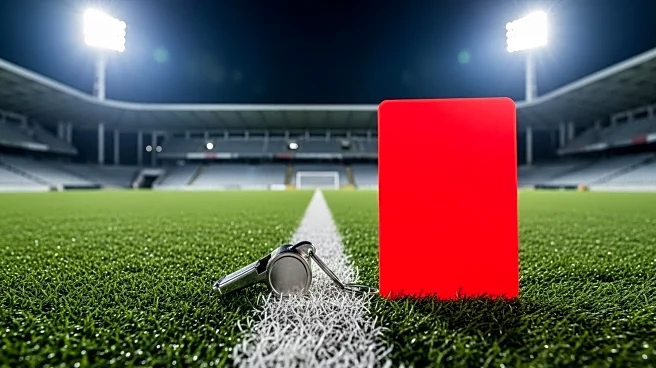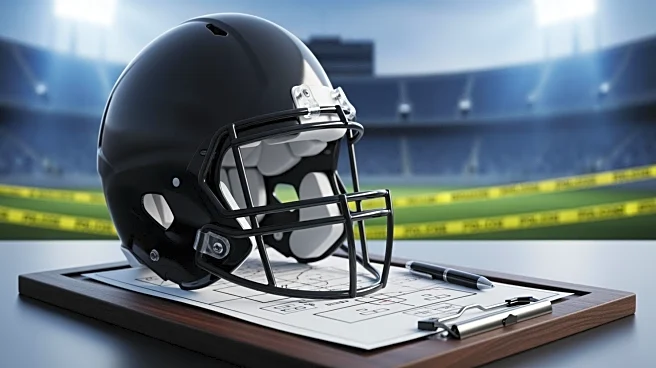What's Happening?
The Atlantic Coast Conference (ACC) has fined Syracuse University $25,000 and issued a public reprimand following their football team's actions during a game against Clemson. Syracuse players were accused of feigning injuries to disrupt the game, particularly during Clemson's offensive plays. The ACC highlighted a specific incident in the fourth quarter, citing violations of NCAA Football Rule 3-3-6-b, which prohibits unethical behavior such as feigning injuries. The league's decision was supported by Steve Shaw, the national coordinator of football officials, who agreed that Syracuse's actions were intended to circumvent the injury timeout rule. Clemson's quarterback, Cade Klubnik, expressed frustration over the frequent stoppages, suggesting they were strategically timed to hinder Clemson's momentum.
Why It's Important?
This incident underscores the ongoing challenges in college football regarding sportsmanship and fair play. The ACC's decision to fine Syracuse reflects the league's commitment to maintaining integrity in the sport. Such actions can impact the reputation of teams and influence future regulatory measures. The fine, which is the maximum allowed by ACC bylaws, will contribute to the Weaver-James-Corrigan-Swofford Postgraduate Scholarship account, highlighting the league's effort to turn penalties into positive contributions. The reprimand serves as a warning to other teams about the consequences of unethical conduct, potentially leading to stricter enforcement of rules and increased scrutiny during games.
What's Next?
Syracuse's coach, Fran Brown, has yet to address the issue publicly, leaving room for potential internal reviews or changes in team strategy. The ACC's decision may prompt other conferences to review their policies on injury timeouts and player conduct. Clemson's response, particularly from coach Dabo Swinney, suggests a focus on maintaining composure and adapting to game disruptions. As the season progresses, teams may become more vigilant in monitoring player behavior to avoid similar penalties. The incident could lead to discussions among NCAA officials about refining rules to prevent exploitation of injury timeouts.









